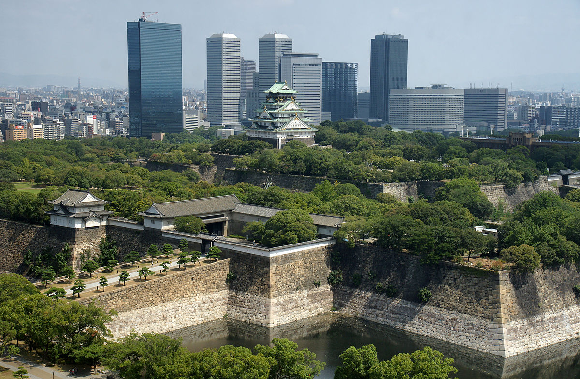
Move would end 60-year-old program between Japanese and American cities.
October marked the 60th anniversary of the formation of a sister city pact between Osaka and San Francisco. However, another development from this autumn could end the relationship.
This fall, a statue was installed in San Francisco’s Chinatown to serve as a memorial to World War II “comfort women,” or women from occupied Asian territories who were coerced into service as sexual companions for occupying Imperial Japanese military personnel. The San Francisco memorial consists of four statues, three of which are young women (symbolizing women from Korea, China, and the Philippines, and one elderly women, representing survivors seeking contrition from Japan. The installation also includes a plaque saying “This monument bears witness to the suffering of hundreds of thousands of women and girls euphemistically called ‘Comfort Women,’ who were sexually enslaved by the Japanese Imperial Armed Forces in thirteen Asian-Pacific countries from 1931 to 1945.”
The memorial, the first of its kind in a U.S. city with a population as large as San Francisco, has drawn criticism from Osaka mayor Hirofumi Yoshimura, who argues it is a form of “Japan bashing.” The 42-year-old politician has sent two letters to San Francisco mayor and first-generation Chinese American Ed Lee, claiming in his correspondence that “There is disagreement among historians regarding historical facts such as the number of comfort women, the degree to which the former Japanese army was involved and the extent of the wartime harm.” Yoshimura has also called on Lee to reconsider the city’s approval of the installation, writing “I once again strongly urge you to treat this issue with careful consideration. In this letter I hope you can realize the heartfelt request that I wish to convey.”
Yoshimura’s requests have failed to prompt a reversal of the memorial’s installation, however, and so the Osaka leader has now said that if things are left to stand as they are, he intends to cancel the cities’ sister city relationship within the year.
In response, the Osaka-based Asahi Shimbun, one of Japan’s largest and oldest newspapers, with a circulation of over six and a half million, published an editorial urging Yoshimura to abandon is hard-line stance on the matter.
While neither supporting nor denying the accuracy of the memorial’s plaque, the Asahi Shimbun editorial seeks to remind Yoshimura that “The sister city relationship between San Francisco and Osaka is a historical asset of both cities, and not something to be severed at the mayor’s personal discretion…If you disagree with the memorial’s statement, then it is important to say so, but withdrawing friendly relations because your opinion is not accepted and adopted indicates a lack of calm rationality.”
“A sister city relationship is not one between country and country,” the editorial continues, “but one between people and people, and one which aims, in particular, to deepen cultural exchange…People from different countries have different ways of thinking, and the spirit of a sister city program is supposed to be that through cultural exchange, people can understand their differences and overcome the barriers between them.”
The editorial, however, has not convinced Yoshimura to chance tack. Following its publication on November 19, Yoshimura fired off a tweet on the same day calling out the newspaper for inaccuracies in its past reporting, and giving no sign that he intends to back away from his professed intention to repeal the sister city status unless the San Francisco authorities show a change in attitude.
On the bright side, it’s unclear whether or not Yoshimura has the authority to single-handedly make such a decision, and the soft-influence nature of sister city arrangements means that even without a formal arrangement in place a portion of the cultural exchange systems in place could continue to operate. Nevertheless, it would be a shame for 60 years of cordial relations to come to an official end, especially in light of the Asahi Shimbun’s reminder that differences of opinion can be a prime reason for, not against, sister city relationships.
Sources: Hachima Kiko, Asahi Shimbun, Newsweek, The Washington Post, The Japan Times
Top image: Wikipedia/663highland

 Osaka ends sister city relationship with San Francisco over comfort women memorial dispute
Osaka ends sister city relationship with San Francisco over comfort women memorial dispute Japanese prefectural governor wants foreign tourists to pay special extra fee
Japanese prefectural governor wants foreign tourists to pay special extra fee Japanese mouthwash effective against coronavirus, according to Osaka Governor
Japanese mouthwash effective against coronavirus, according to Osaka Governor Japanese teen idol group disbands following “indecent behavior” by producer as members slept
Japanese teen idol group disbands following “indecent behavior” by producer as members slept Osaka governor suggests lowering voting age to 0 to curb population decline
Osaka governor suggests lowering voting age to 0 to curb population decline Foreigner’s request for help in Tokyo makes us sad for the state of society
Foreigner’s request for help in Tokyo makes us sad for the state of society Bad tourist manners at Mt Fuji Lawson photo spot prompts Japanese town to block view with screens
Bad tourist manners at Mt Fuji Lawson photo spot prompts Japanese town to block view with screens McDonald’s Japan’s new pancake pie is a taste sensation
McDonald’s Japan’s new pancake pie is a taste sensation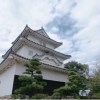 One of Japan’s oldest castles now lets travelers spend night on the grounds, drink in its keep
One of Japan’s oldest castles now lets travelers spend night on the grounds, drink in its keep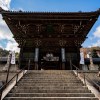 A visit to the ordinarily forbidden hall of Nara’s Hasedera Temple【Photos】
A visit to the ordinarily forbidden hall of Nara’s Hasedera Temple【Photos】 Studio Ghibli unveils massive T-shirt collection featuring top anime movie characters
Studio Ghibli unveils massive T-shirt collection featuring top anime movie characters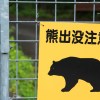 Bear attacks car in Japan, breaks windshield with its paw【Video】
Bear attacks car in Japan, breaks windshield with its paw【Video】 Japanese-style accommodation at the new Premium Dormy Inn hotel in Asakusa will blow your mind
Japanese-style accommodation at the new Premium Dormy Inn hotel in Asakusa will blow your mind Red light district sushi restaurant in Tokyo shows us just how wrong we were about it
Red light district sushi restaurant in Tokyo shows us just how wrong we were about it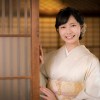 Two things to do, and two things not to do, when leaving a traditional Japanese inn
Two things to do, and two things not to do, when leaving a traditional Japanese inn Japanese ramen restaurants under pressure from new yen banknotes
Japanese ramen restaurants under pressure from new yen banknotes McDonald’s new Happy Meals offer up cute and practical Sanrio lifestyle goods
McDonald’s new Happy Meals offer up cute and practical Sanrio lifestyle goods Tokyo Tsukiji fish market site to be redeveloped with 50,000-seat stadium, hotel, shopping center
Tokyo Tsukiji fish market site to be redeveloped with 50,000-seat stadium, hotel, shopping center Japanese city loses residents’ personal data, which was on paper being transported on a windy day
Japanese city loses residents’ personal data, which was on paper being transported on a windy day Beautiful Red and Blue Star luxury trains set to be Japan’s new Hokkaido travel stars
Beautiful Red and Blue Star luxury trains set to be Japan’s new Hokkaido travel stars Ghibli Park now selling “Grilled Frogs” from food cart in Valley of Witches
Ghibli Park now selling “Grilled Frogs” from food cart in Valley of Witches New definition of “Japanese whiskey” goes into effect to prevent fakes from fooling overseas buyers
New definition of “Japanese whiskey” goes into effect to prevent fakes from fooling overseas buyers Our Japanese reporter visits Costco in the U.S., finds super American and very Japanese things
Our Japanese reporter visits Costco in the U.S., finds super American and very Japanese things All-you-can-drink Starbucks and amazing views part of Tokyo’s new 170 meter-high sky lounge
All-you-can-drink Starbucks and amazing views part of Tokyo’s new 170 meter-high sky lounge More foreign tourists than ever before in history visited Japan last month
More foreign tourists than ever before in history visited Japan last month New Pokémon cakes let you eat your way through Pikachu and all the Eevee evolutions
New Pokémon cakes let you eat your way through Pikachu and all the Eevee evolutions Disney princesses get official manga makeovers for Manga Princess Cafe opening in Tokyo
Disney princesses get official manga makeovers for Manga Princess Cafe opening in Tokyo We try out “Chan Ramen”, an underground type of ramen popular in the ramen community
We try out “Chan Ramen”, an underground type of ramen popular in the ramen community Sales of Japan’s most convenient train ticket/shopping payment cards suspended indefinitely
Sales of Japan’s most convenient train ticket/shopping payment cards suspended indefinitely Sold-out Studio Ghibli desktop humidifiers are back so Totoro can help you through the dry season
Sold-out Studio Ghibli desktop humidifiers are back so Totoro can help you through the dry season Japanese government to make first change to romanization spelling rules since the 1950s
Japanese government to make first change to romanization spelling rules since the 1950s Ghibli founders Toshio Suzuki and Hayao Miyazaki contribute to Japanese whisky Totoro label design
Ghibli founders Toshio Suzuki and Hayao Miyazaki contribute to Japanese whisky Totoro label design Doraemon found buried at sea as scene from 1993 anime becomes real life【Photos】
Doraemon found buried at sea as scene from 1993 anime becomes real life【Photos】 Tokyo’s most famous Starbucks is closed
Tokyo’s most famous Starbucks is closed One Piece characters’ nationalities revealed, but fans have mixed opinions
One Piece characters’ nationalities revealed, but fans have mixed opinions We asked a Uniqlo employee what four things we should buy and their suggestions didn’t disappoint
We asked a Uniqlo employee what four things we should buy and their suggestions didn’t disappoint Come for the toilets, stay for the food and fun at Bangkok’s airport-themed mall “Terminal 21”
Come for the toilets, stay for the food and fun at Bangkok’s airport-themed mall “Terminal 21” Japanese university globalizes with fall start date, governor wants English as official language
Japanese university globalizes with fall start date, governor wants English as official language It’s WAR! Susaki City demands Chiitan suspend all activities over copyright violation
It’s WAR! Susaki City demands Chiitan suspend all activities over copyright violation Welcome back, Baymax! Disney’s Big Hero 6 getting sequel series
Welcome back, Baymax! Disney’s Big Hero 6 getting sequel series Kyary Pamyu Pamyu to perform at J-Pop Summit Festival’s opening concert in San Francisco
Kyary Pamyu Pamyu to perform at J-Pop Summit Festival’s opening concert in San Francisco Virtual idol Hatsune Miku announces seven-city U.S., Canadian concert tour
Virtual idol Hatsune Miku announces seven-city U.S., Canadian concert tour U.S.-Japan release collaborative video of support one year after Kumamoto earthquakes【Video】
U.S.-Japan release collaborative video of support one year after Kumamoto earthquakes【Video】 Tokyo Tama schools distributing free feminine hygiene products to students
Tokyo Tama schools distributing free feminine hygiene products to students Osaka University professor: “The prince from Snow White is a sex offender”
Osaka University professor: “The prince from Snow White is a sex offender” The dirty reason China can’t always tell North Korea what to do
The dirty reason China can’t always tell North Korea what to do Human pyramids continue in Kobe schools as injuries mount to 51, mayor’s pleas to stop unanswered
Human pyramids continue in Kobe schools as injuries mount to 51, mayor’s pleas to stop unanswered Naturally brown-haired Osaka student sues government for forcing her to dye her hair black
Naturally brown-haired Osaka student sues government for forcing her to dye her hair black Less than 10 percent survived the first Attack on Titan Real Escape Game
Less than 10 percent survived the first Attack on Titan Real Escape Game Thousands oppose Osaka Metro’s plan to change major stations in giant boats and fabric swatches
Thousands oppose Osaka Metro’s plan to change major stations in giant boats and fabric swatches Big Hero 6 gives Japan its first Disney hero 【Video】
Big Hero 6 gives Japan its first Disney hero 【Video】
Leave a Reply